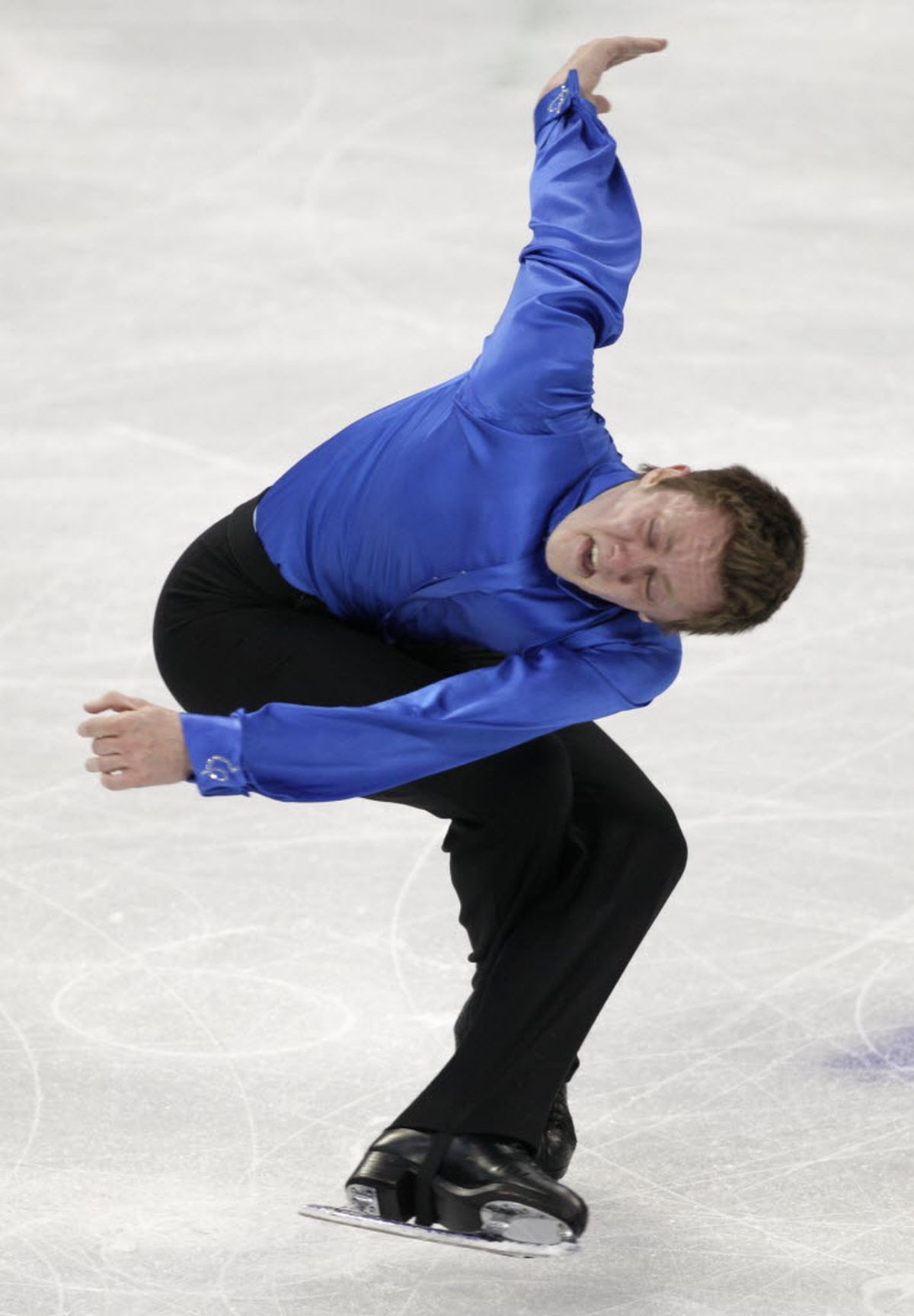Artistry proves good as gold
Lysacek’s grace tops Plushenko’s strength

VANCOUVER, B.C. – In four and a half minutes, Evan Lysacek ended an 18-year Russian dynasty.
He also ended figure skating’s perpetual debate about artistry versus athleticism. At least for now.
The American was the most complete skater at the Vancouver Olympics. His long program Thursday night to Rimsky-Korsakov’s “Scheherazade” was not only the most lyrical but the most intense, chock full of jumps, steps, spins, kicks and judge-pleasing flourishes. He is a meticulous guy, and his performance reflected his emphasis on details.
But Lysacek had one hole in his repertoire and that was the lack of a quadruple jump. He is unapologetic about it. He is a figure skater, not a circus act.
It didn’t matter. His superior grace and his all-around skill trumped Evgeni Plushenko’s quad. Plushenko, who was trying to become the first repeat Olympic champ since Dick Button in 1952, opened his flirtatious “Tango Amore” program with an ambitious quadruple toe loop-triple toe loop combination but landed it with a slight stumble. He wobbled on his triple axel. Those mistakes were enough for Lysacek to beat him by 1.31 points with a total of 257.67.
Lysacek became the first American to win Olympic gold since Brian Boitano won the “Battle of the Brians” the last time the Olympics were held in Canada, in 1988.
Lysacek skated a clean and passionate program as the first competitor in the final group of six contenders.
Dressed, as he usually is, in black velvet, Lysacek landed eight triple jumps, including three combinations. His only glaring error was on the landing of his triple axel-double toe loop.
As his program came to a frantic end, Lysacek pumped his fist during his final spin. He mouthed the word “Yes” as he waved to the crowd, then crossed his fingers for the cameras in the kiss-and-cry area.
It was a victory for his coach as well. Frank Carroll, 71, has had three previous skaters in contention for Olympic gold. None could pull it off.
If Plushenko is the Michael Jordan of men’s figure skating, Lysacek is the Mikhail Baryshnikov. He proved Thursday that ballet was better than bravado.
Lysacek didn’t take the risks Plushenko did. A stress fracture in his left foot has prevented him from practicing the quad consistently. He decided to leave it out.
He was rewarded for making the right choice. While other skaters such as Daisuke Takahashi and Stephane Lambiel struggled with their jumps, Lysacek stayed silky throughout.
When Plushenko soars, all the criticism about him being a one-dimensional skater goes flying into space. Outer space.
He could be the only skater who induces vertigo in those watching him.
He revolutionized the revolutions in his sport. He has relied unabashedly on his quadruple jumps and dizzying combinations.
But his way was not the winning way Thursday night.
Wearing a sequined red vest and silver tie, Plushenko failed to nail his jumps.
Plushenko, 27, came out of a three-year retirement because he was alarmed by Russia’s falling fortunes in skating and because he felt that without him pushing the envelope, men’s skating was going backward.
But when his jumps didn’t quite work, he didn’t have the moves to make up for them. He tried a pelvic thrust, blowing a kiss to the crowd – but that showmanship couldn’t disguise his slow spins and unsubstantial footwork.
Lysacek was clearly better. He didn’t just win gold. He earned it.